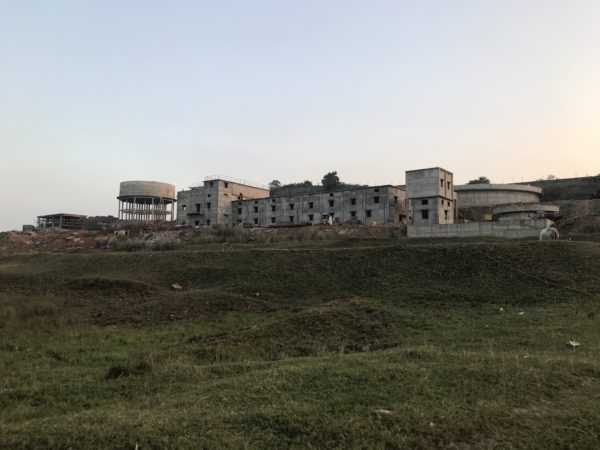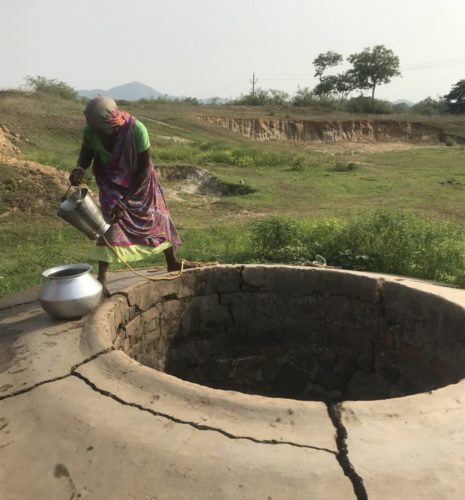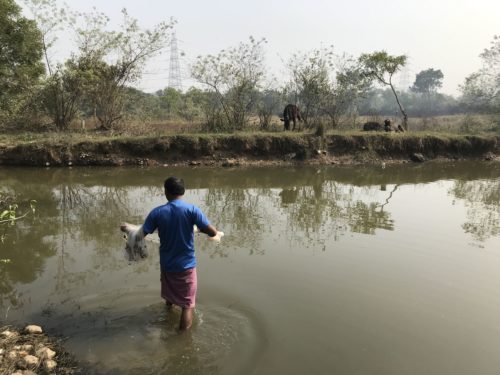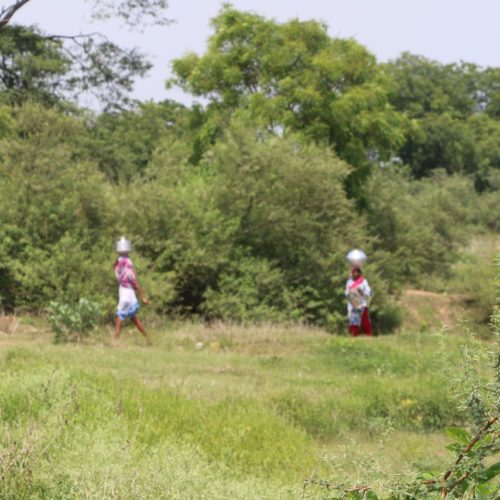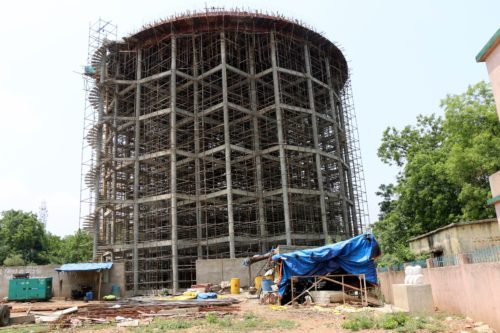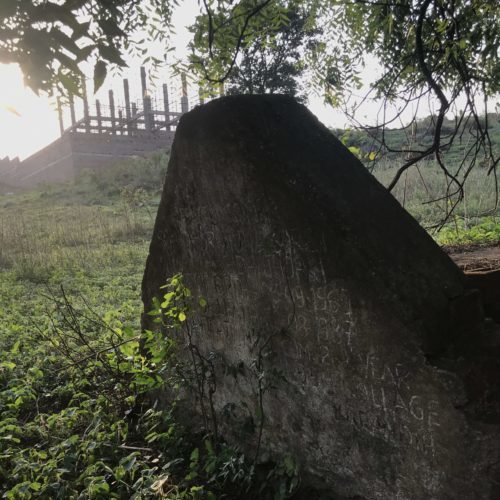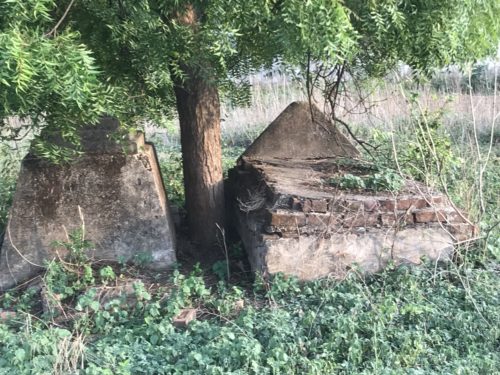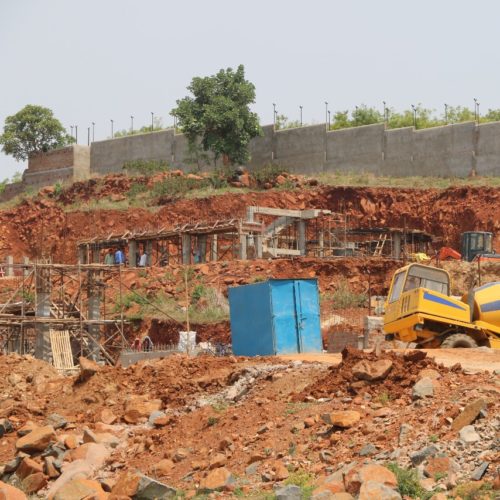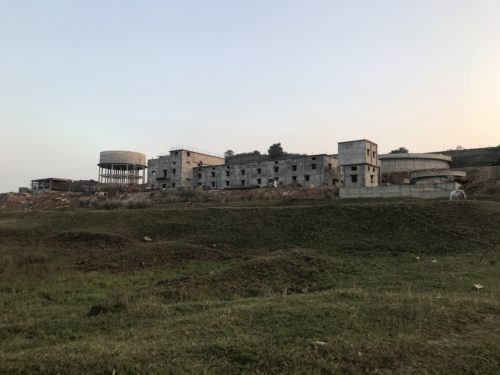India: Jharkhand Water Project
-
Overview
In two villages in Jharkhand, India, a World Bank funded water supply project is being forced on local Indigenous Adivasi people in violation of World Bank policy and with disastrous impacts.
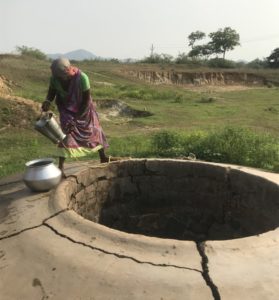
The project began on the land of these Indigenous Santhal and Ho Adivasi communities, who live on the outskirts of Jamshedpur, without provision of even basic information about the project.
As the project construction began, women and children peacefully protesting the destruction of their sacred sites were beaten and abused, actions for which there has been no accountability.
The project’s design failed to address impacts on Indigenous cultural resources, customary use of land, social issues, and the environment.
The project failed to consult with local people through mandatory Gram Sabha (village council) processes protected under Indian law, causing irreparable cultural harm by placing structures on burial, cremation and worship sites of great cultural, historical, and spiritual importance to the Santhal and Ho communities. Communities fear environmental harm if the wastewater from households pollutes their ecosystem.
Communities also fear this project will contribute to the expansion of Jamshedpur city limits, and take away special self-governance protections they enjoy under Indian law.
The communities have raised their voices about these concerns through complaints to the World Bank Inspection Panel. After finding the complaints eligible, the Inspection Panel has now completed its compliance review investigation and submitted its report to the World Bank Board on January 15, 2020. Travel restrictions as a result of the COVID-19 pandemic have affected the Bank’s ability to conduct consultations with communities on the action plan to address non-compliance. Communities expect the Bank will ensure harm will be remedied. Read more about the Inspection Panel here.
“When construction was attempted for the first time, we strongly protested. At the time, most of the men of the village were away for work. When the women of the village went to the construction site, we were beaten with lathis.” — Member of Giddhijhopri village
-
The Story
Background: Sacred Spaces on Indigenous Land
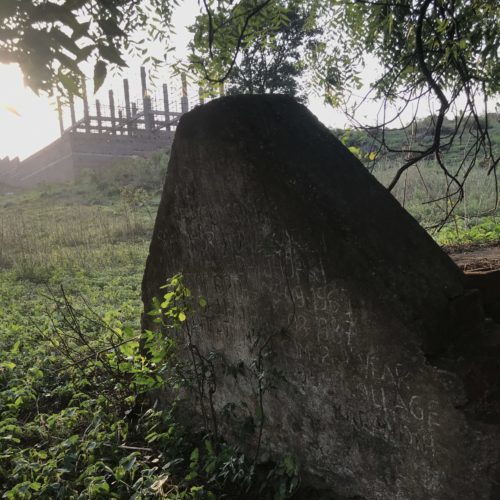
Giddhijhopri is a small village on the outskirts of Jamshedpur city in Jharkhand, India, where a Santhal Indigenous community has lived for generations. The Santhal community follows their traditional Majhi-Pargana system of self-governance. Jaher Sthal, a hill that marks the boundary of the Santhal community village, is the resting place of their ancestors and their sacred grove.
The Santhals believe that the spirits residing in the Jaher Sthal protect them. For generations, people of Giddhijhopri have buried their dead at the Jaher Sthal, and performed their ritual ceremonies around the sacred grove. Today, an incomplete water treatment plant stands on the summit of the Jaher Sthal.
Development By Force
On a July afternoon in 2016, as the women of Giddhijhopri were attending to their household chores and farm work, they heard that police officers along with earthmoving, heavy machinery had arrived at their Jaher Sthal to begin construction work. This was the first time most of these women had heard of the project. When they protested and asked for legal permission, the police used brute force to disperse the women and filed criminal cases against community members.
Less than 10 kilometres away, in Sarjamda Purana Basti village, a water storage tank has been built on the memorial site of three brave men who lost their lives in the agitation for an independent state of Jharkhand. Sarjamda Purana Basti is the home of Santhal and Ho Adivasi communities. Ho communities follow a Munda-Manki system of self-governance. Just like people in Giddhijhopri, the villagers in Sarjamda Purana Basti were kept in the dark about the construction of the storage tank on this site of deep historical, cultural significance. Project authorities first came to Sarjamda Purana Basti in 2015, and claimed to be conducting a soil examination. Construction work then began in December 2016 when the village’s traditional leaders were in Delhi despite earlier assurances that no construction would take place without Gram Sabha consent. The Adivasi residents of Sarjamda Purana Basti have passed several Gram Sabha resolutions opposing construction of the tank in their village.
High Risks and No Rewards
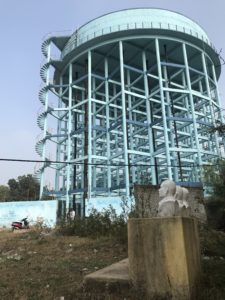
The Chhotagovindpur and Bagbera multi-village schemes causing harm in the two villages are sub-projects of the Rural Water Supply and Sanitation Project for Low Income States, a US $1 billion project financed by the World Bank (US $500 million) and the Government of India. The project is being implemented in the states of Assam, Bihar, Jharkhand, and Uttar Pradesh in India.
The communities object to the very premise of the project, which involves charging them for piped water. Presently, the communities have free access to clean water for all purposes, including a pond and under-ground stores accessed through hand-pumps and wells. These piped water schemes risk damaging their current water sources due to the waste they will generate. They understand the project will largely supply water to mainly non-Adivasis living in quasi-urban colonies on the outskirts of Jamshedpur.
The Complaints
The two community complaints to the Inspection Panel outline that World Bank’s failure to consult project-affected communities violates not only its own policies, but also Indian law. As an Indigenous-majority area, the villages enjoy special protections under Schedule V of the Constitution of India together with the Panchayats (Extension to Scheduled Areas) Act, 1996, which requires any development scheme, welfare plan, or decision regarding common community resources be taken by a Gram Sabha (village council) resolution. The complaints underscore that the mandatory Gram Sabha resolutions were not obtained. The communities in Giddhijhopri have stated that the State administration and police authorities also used force to disperse peaceful community protests against the implementation of the Scheme and have filed false criminal cases against members of the village to pressure the community to withdraw their opposition.
The impact of the water supply schemes on the Santhal and Ho communities risks threatening their unique identity. Communities believe that the water supply schemes are part of the proposed Jamshedpur Urban expansion plan. Once urban expansion happens, they fear these villages will no longer remain rural Adivasi villages and that their traditional governance system and land rights protections will come to an end.
Responses So Far
In its written responses to the complaints made by the communities, World Bank management conceded to several safeguard policy non-compliance issues raised in the complaints, including weaknesses in project design and supervision, the conduct and documentation of consultations, disclosure of key scheme-specific documents, and failure to apply the Bank Policy on Cultural Physical Resources.
On the recommendation of the Inspection Panel, the World Bank Board of Directors approved an investigation into this project on March 1, 2019.
The Panel completed their investigation and submitted it to the Board on January 15, 2020. The communities were in the process of engaging in a consultation on a proposed Management Action Plan, however, those consultations had to be postponed due to the COVID-19 pandemic. The consultations, followed by World Bank Board review of the Management Action Plan, is expected once the Bank’s travel restrictions are eased.
Case Partners
Accountability Counsel’s case partner is Bineet Mundu. Mr. Mundu is an Indigenous academic and social activist, who has many years of experience working with social movements. He is an advisor to the communities.
-
The Case
-
Feb 2021
In February 2021, the World Bank released a completion and results report for the Rural Water Supply and Sanitation Project for Low Income States, stating that the Inspection Panel complaints from Giddhijhopri and Sarjamda Purana Basti typify failings plaguing hundreds of water schemes funded under the project. The report states that “weak compliance monitoring, systematic gaps in community consent and land-transfer processes, and a weak GRM [Grievance Redress Mechanism] – directly contributed to instances of safeguards non-compliance that were the subject of the Inspection Panel review.”
-
Jan 2020
On January 15, 2020, the Inspection Panel submitted its Investigation Report to the World Bank Board of Directors. It is yet to be made public since the Bank’s consultations with communities on the remedial action plan has had to be postponed due to travel restrictions associated with COVID-19.
-
Aug 2019
On August 27, 2019, both communities filed a Supplement to their original complaints to the Inspection Panel.
-
Mar 2019
On March 1, 2019, the World Bank Board of Directors approved the Inspection Panel’s recommendation for an investigation into complaints submitted by both Giddhijhopri and Sarjamda Purana Basti villages.
-
Feb 2019
On February 12, 2019, the Inspection Panel submitted its Report and Recommendation for Inspection for both Giddhijhopri and Sarjamda Purana Basti to the World Bank Board of Directors.
-
Jan 2019
The Panel received the Management Response to Giddhijhopri’s Request on December 11, 2018, and the Management Response to Sarjamda Purana Basti’s Request on January 28, 2019. As the Inspection Panel notes, “In both Responses, management acknowledged shortcomings in compliance with Bank safeguard policy requirements, including weaknesses in project design and supervision, the conduct and documentation of consultations, disclosure of key scheme-specific documents, a non-objection to the initiation of works ahead of an approved Environmental Management Plan and failure to apply the Bank Policy on Cultural Physical Resources.”
-
Dec 2018
In December 2018, an Inspection Panel delegation travelled to Jharkhand, viewed the project sites, and met with community members affected by the project.
-
Dec 2018
On December 12, 2018, the Sarjamda Purana Basti community submitted a Request for Inspection with annexes to the Inspection Panel at the World Bank.
-
Oct 2018
On October 10, 2018, the Giddhijhopri Majhi, on behalf of the Giddhijhopri community, submitted a comprehensive supplement with annexes to the Request for Inspection.
-
Oct 2018
On October 8, 2018, the Majhi of Sarjamda Purana Basti sent a letter on behalf of the affected community in Sarjamda Purana Basti to the Team Leader for Rural Water Supply and Sanitation Project for Low Income States at the World Bank.
-
Sep 2018
On September 20, 2018, the Giddhijhopri community submitted a Request for Inspection to the Inspection Panel at the World Bank.
-
Apr 2018
On April 6, 2018, the Majhi (traditional leader) of Giddhijhopri sent a letter on behalf of the Giddhijhopri community to the Team Leader for Rural Water Supply and Sanitation Project for Low Income States at the World Bank.
-
May 2017
On May 18, 2017, the Majhi (traditional leader) of Giddhijhopri wrote to the Department for Drinking Water and Sanitation, Jharkhand, under India’s Right to Information Act, asking for copies of environment and social assessments and environment data sheets pertaining to the Chhotagovindpur and Bagbera multi-village schemes.
-
Jul 2016
On July 15, 2016, police officers arrived at the Jaher Sthal of Giddhijhopri village accompanied by workers, and earth extraction machines. Women from Giddhijhopri, who gathered at the site, demanded to see the Gram Sabha resolution from Giddhijhopri village, showing consent for the construction work. When the police could not produce any such Gram Sabha resolution, the women peacefully protested against the commencement of project work without proper consultation and community consent.
In response to this peaceful protest, the police used force, injuring several women and children. The police also filed criminal cases against several leaders of the community.
-
Jan 2014
The World Bank approved a credit of $500 million for the Rural Water Supply for Low Income States project to improve piped water supply and sanitation schemes in the Indian states of Assam, Bihar, Uttar Pradesh, and Jharkhand.
-
-
Impact
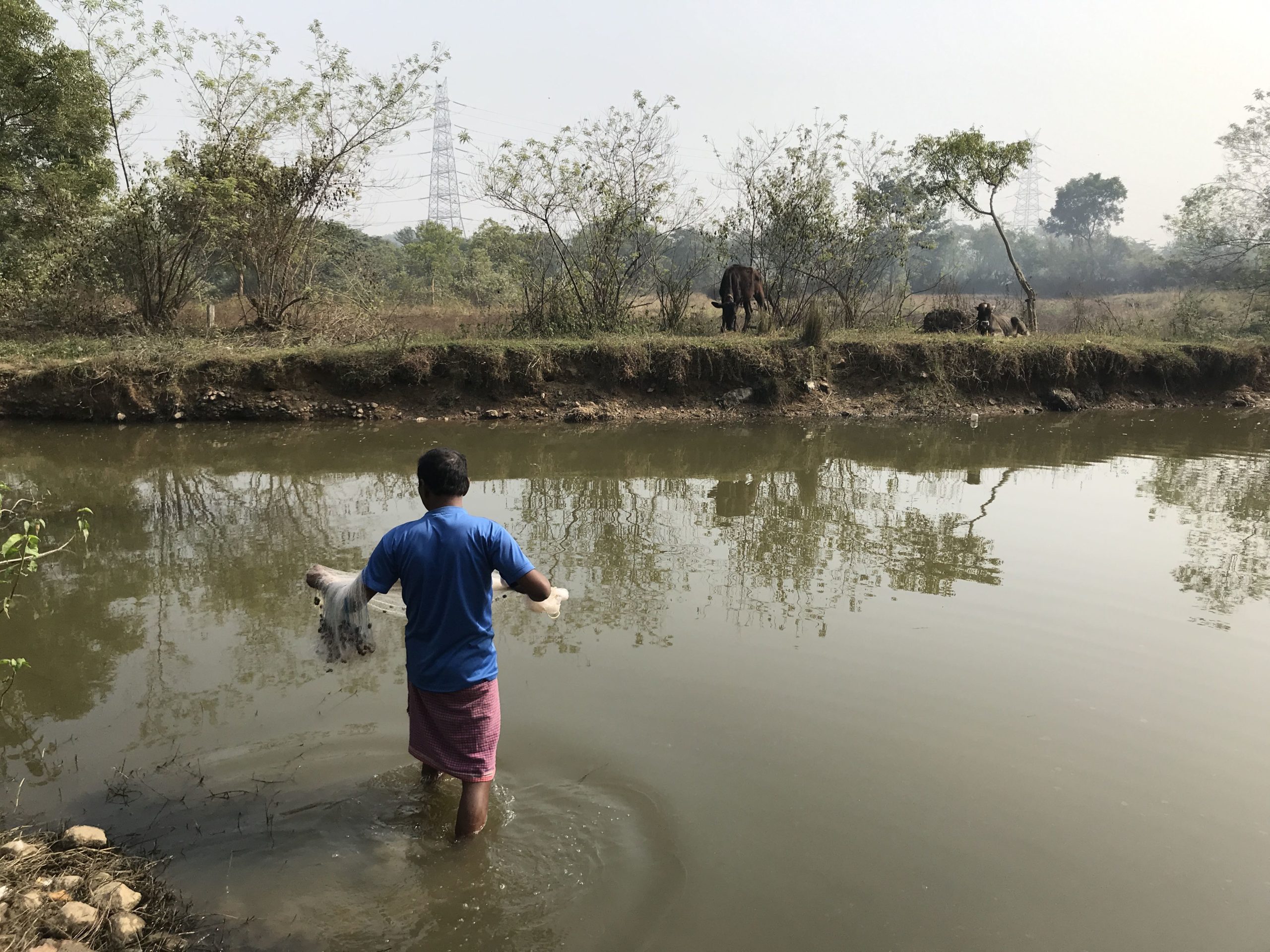 The Giddhijhopri and Sarjamda Purana Basti communities sought help from Accountability Counsel to develop and pursue complaints to the Inspection Panel through their advisor, Bineet Mundu, in late 2016 and 2017 respectively. With Accountability Counsel’s support, the Santhal and Ho communities filed complaints to the World Bank’s Inspection Panel in 2018 that were successfully registered and found eligible.
The Giddhijhopri and Sarjamda Purana Basti communities sought help from Accountability Counsel to develop and pursue complaints to the Inspection Panel through their advisor, Bineet Mundu, in late 2016 and 2017 respectively. With Accountability Counsel’s support, the Santhal and Ho communities filed complaints to the World Bank’s Inspection Panel in 2018 that were successfully registered and found eligible.Our work has included continued support to the communities and their traditional leadership to prepare for, understand, and navigate through each stage of the compliance investigation process, demanding accountability and remedy from the World Bank for its oversight and lack of due diligence that has harmed these communities. This included pre-complaint support to file a Right to Information application with local authorities for project information, facilitating laboratory water testing of water sources, as well as support to draft and file separate complaints with the World Bank Inspection Panel, and a follow-up Supplement to the original complaints.
In written responses to the complaints from the communities, World Bank Management acknowledged non-compliance on a number of crucial requirements. The World Bank conceded that it did not have the requisite Gram Sabha consent from the two villages. It also agreed that the project implementation was commenced without the mandatory environmental and social assessment. On January 15, 2020 the Inspection Panel submitted its Investigation Report to the World Bank Board of Directors.
-
Case Media
Blog Posts
Op-Eds
- 22 October 2020 From Juukan to Jharkhand: Demanding Accountability for Desecration of Indigenous Cultural Heritage By Anirudha Nagar, Accountability Counsel in The Wire
- 2 July 2020 Come hell or piped water By Anirudha Nagar, Accountability Counsel, in Devex
- 22 March 2020 In deep water By Anirudha Nagar, Accountability Counsel, in India Water Portal
Media Coverage
- 16 July 2019 Jamshedpur: World Bank team meets communities affected by Bagbera Water Supply Scheme By The Avenue Mail
- 4 April 2019 No consent of communities? World Bank to investigate water supply project in Jharkhand By Development Channel
- 4 April 2019 Nod for probe into World Bank-funded project in Jharkhand By Abhishek Angad, The Indian Express
- 27 November 2018 What Made a World Bank Team go to Jharkhand (विश्व बैंक की टीम को क्यों जाना पड़ा झारखंड) By Ravi Prakash (रवि प्रकाश), BBC News Hindi
- 16 July 2016 Water War By Hindustan Times (Ranchi)
Photos

